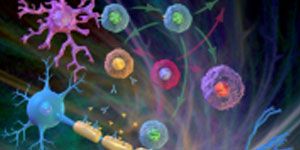Nanotechnology a Possible Future Solution for Multiple Sclerosis
The University of Southern California is developing a brain model that can pave the way for nanotechnology treatment development for multiple sclerosis and other neurological disorders.

A University of Southern California (USC) PhD student has announced plans to develop a model of a human brain that can mimic the electrical circuit pathways of multiple sclerosis (MS) and other neurological diseases that can affect patients’ brains. The team he is working with hopes the brain model can lead to better treatment options, implementation plans, and the true pathology of various neurological diseases.
“There is no known cure for many of the most debilitating neural diseases,” Kun Yue, a doctoral student in the USC Viterbi Ming Hsieh Department of Electrical Engineering, said in a statement. “New technology can ease people's suffering.”
Yue’s plan came together with the help of a 2014 Research Enhancement Fellowship awarded by the USC Graduate School. Alice Parker, PhD, an electrical engineering professor and leader of the USC Biomimetic Real-time Cortex (BioRC) Project, is guiding the development of the model with Yue creating an interdisciplinary plan using nanotechnology.
Parker’s research will be focused on designing carbon nanotube neural nanocircuits, as well as investigating the progress in developing synthetic cortex based on statistical predictions. Yue’s work is part of a bigger project, lead by Parker, which will attempt to reverse engineer the brain.
“Nano medicine is popular, but not many are working on it because few universities have the resources for the interdisciplinary work,” Yue said.
The researchers at USC believe their nanotechnological methods have the potential to achieve the same results as deep brain stimulation. The biggest difference, Yue noted is that instead of the invasive surgery that comes with stimulation, they believe nanotechnology can be effective without any major surgery being necessary.
Yue also plans on incorporating this research into his mentor project, which focuses on reverse engineering the brain. He will work with a team of experts from the university's neuroscience, medicine, and pharmacology departments.